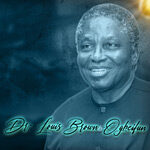Forgiveness Over Judgment: Embracing the Teachings of Christ and Abraham in Our Daily Lives
We know that whatever people sow, they will reap. But friends, no matter what people did to us, let us not be a part of the celebration of other people’s fall because such celebrations might just make us miss the mark of Christ in us and the heavenly blessings; after all, were we not warned to judge people?
As members of the Christian community, we often proudly declare ourselves as the children of Abraham and followers of Jesus. But do we genuinely embody their teachings or emulate their examples? This Sunday, let’s delve deeper into our own responses when those who have wronged us face their own trials. Do we sincerely pray for them or silently rejoice in their misfortunes? How do our actions, our thoughts, and our hearts reflect the teachings we claim to follow?
Abraham’s relationship with his nephew, Lot, was not without its difficulties. Yet, Abraham demonstrated remarkable selflessness, providing for Lot and even allowing him to choose his own settlement. Can we imagine the internal struggle and sacrifice Abraham must have faced in that moment? How many of us would show such selflessness, allowing others to choose before us? As expected, Lot chose the best and most fertile land.
Unbeknown to Lot, if God has anointed a man with blessings, he would turn a desert into a green land for the sake of the chosen one. As life went on, there was a war between the coalition of eastern and western kings, a conflict that was not of Lot’s making. During that war, Lot was captured and became a prisoner of war, a victim of circumstances beyond his control.
Ordinarily, Abraham would have said, “Good for him.” He would have seen it as an opportunity to acquire Lot’s estate. But Abraham did none of these. Instead, he waged a war against the kingdoms and rescued Lot, his nephew, showing a remarkable act of forgiveness and selflessness. In another instance, Abraham asked God to keep Lot and his family from the ruins of Sodom and Gomorrah, a plea that was granted. If it were us, would we have done that or said,” He deserves what he got”?
In the case of Jesus Christ and Peter, when Jesus was facing humiliation from his enemies, Jesus expected His friends and allies to stand by him. However, driven by fear, Peter denied ever knowing Jesus, not once, but three times. Even when Jesus asked Peter three times, “Do you love me,” Peter couldn’t answer. It was a profound betrayal. Yet, Jesus did not only forgive Peter but elevated him to the chief executive officer to lead the church, saying, “Feed my sheep.”
These acts of forgiveness and promotion by Jesus, the rescue of Lot as a prisoner of war by Abraham, whom Lot disrespected many times, and his intercession for him to be spared from the ruins of Sodom and Gomorrah, are not just stories but powerful testaments to the transformative power of forgiveness. Peter, who displayed a cowardly attitude in denying Jesus, was not only forgiven but also elevated to the chief executive officer to lead the church, a position of great responsibility and trust. This shows that forgiveness can change lives and relationships in ways we may not even imagine.
Apart from the Lord’s prayers that said unequivocally that the measures of our forgiveness would be his forgiving our sins against him and His kingdom, meaning that the extent to which we forgive others is a reflection of how much we are forgiven by God, the lessons from Jesus and Father Abraham reflect how we should behave toward those who offend or undermine us. May the Lord grant us the wisdom to abide in Him and His teachings now and forever. Amen.
Grace and peace!!!




